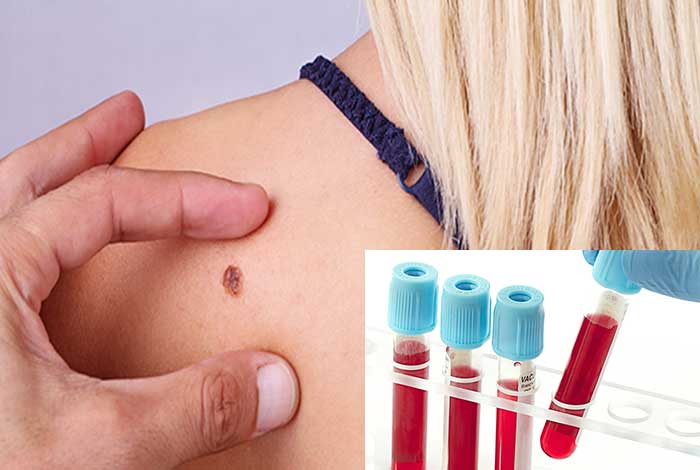
World’s First Blood Test to detect Early Stage Skin Cancer Developed

Australian scientists have developed world’s first blood test that can detect skin cancer before it spreads in the body. This will help in early detection of the deadliest form of skin cancer, melanoma, thereby increasing the prospects of treatment. It will also help in avoiding invasive and expensive biopsies.
The team of researchers said that this test is more accurate than the tests that are used currently to detect skin cancer. The current method involves looking at the skin and making assessments about the moles and before sending the skin sample for further examination. However, it is extremely difficult to distinguish early stage cancer from a mole. Although clinicians do an excellent job with their tools, it is not wise to rely on biopsies alone.
As soon as the body develops a melanoma, antibodies start developing which can now be detected with the help of blood test in very early state.
There is no other biomarker that can detect cancer through blood in such early stage.
Melanom is a skin cancer that is caused due to exposure to sun and if it is left undetected, can spread to other parts of the body like liver, lungs and brain. The secondary melanomas are more dangerous and more difficult to treat.[1]
When researchers performed the clinical trial of the blood test on 209 people, it was found that it could detect cancer in the early stages in nearly 81.5% of the cases. If melanoma is detected before it spreads to other parts of the body, there is 90-99% chances of surviving for next 5 years. However, when the cancer has spread to other parts of the boy, the chances of survival dips to less than 50%.
The team of researchers said that the test can become a part of the routine procedure for detecting melanoma in people who have a number of moles, family history of the disease and pale skin. It is extremely important that melanoma gets diagnosed accurately and early. Therefore, if a blood test can detect it in the early stages, it would be extremely beneficial for everyone.[2]
With the clinical trials soon to begin this test will become available to the public in next 3-5 years.
World Health Organization states that skin cancers are more commonly seen in Caucasians, especially those who have pale or freckled skin, blue eyes or fair or red hair.
Australia has the highest number of melanoma patients in the world, with nearly 14,000 new diagnoses and about 2000 deaths every year.
Professor Rodney Sinclair, university of Melbourne, stated that the test is not cent percent accurate and the results will need to be intercepted cautiously by a dermatologist.










